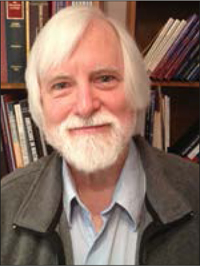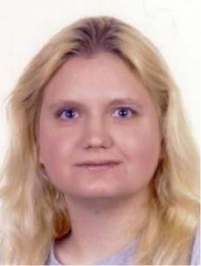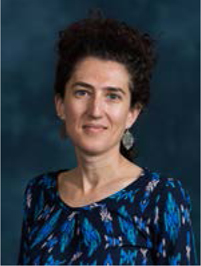The following officers and council members were elected in 2019 by the APSA Council. APSA welcomes the new officers and council members.
PRESIDENT
Paula D. McClain
Paula D. McClain is professor of political science and professor of public policy at Duke University, where she also serves as dean of the Graduate School and vice provost for graduate education. She has also directed APSA’s Ralph Bunche Summer Institute at Duke for more than 20 years.

McClain studies racial minority group politics—particularly interminority political and social competition. She has published in numerous journals, including the American Political Science Review, the Journal of Politics, and Politics, Groups, and Identities. She also has three coauthored books:
• American Government in Black and White: Diversity and Democracy (with Steven Tauber), which won APSA’s Race, Ethnicity, and Politics section’s Best Book Award for a book published in 2010;
• “Can We All Get Along?” Racial and Ethnic Minorities in American Politics (with Joseph Stewart), which won the 1996 Gustavus Myers Center for the Study of Human Rights in North America Award for Outstanding Scholarship on the Subject of Intolerance; and
• Race, Place, and Risk: Black Homicide in Urban America (with Harold M. Rose), which won the National Conference of Black Political Scientists’ 1995 Best Book Award for a previously published book that has made a substantial and continuing contribution.
McClain has served as president of the Midwest Political Science Association (MPSA), the Southern Political Science Association (SPSA), and the National Conference of Black Political Scientists. She has also been vice president of APSA, MPSA, and SPSA, as well as program chair or co-chair for the annual meetings of all three organizations. She was also a vice president and program co-chair for the 2003 International Political Science Association World Congress.
In 2014, McClain was elected to the American Academy of Arts and Sciences. Her numerous honors include the Duke University Blue Ribbon Diversity Award (2012), the Graduate School Mentoring Award (2010), the Frank J. Goodnow Award for contributions to the profession of political science (2007), a Meta Mentoring Award from the Women’s Caucus for Political Science of the APSA (2007), the Manning Dauer Award from SPSA (2015), and the Midwest Women’s Caucus of Political Science Outstanding Professional Achievement Award (2017).
PRESIDENT-ELECT
Janet Box-Steffensmeier, The Ohio State University
Janet Box-Steffensmeier is Vernal Riffe Professor of Political Science, professor of sociology by courtesy, interim executive dean and vice provost for the College of Arts and Sciences, and lead dean for the Translational Data Analytics Institute at The Ohio State University. She earned her BA from Coe College (1988) and her PhD from the University of Texas at Austin (1993). She formerly served as the faculty representative to the Ohio State Board of Trustees and as divisional dean for Social and Behavioral Sciences.

Box-Steffensmeier has served as vice president and treasurer of APSA as well as president of MPSA and the Society for Political Methodology. She is a fellow of the American Academy of Arts and Sciences and an inaugural fellow of the Society for Political Methodology. The Box-Steffensmeier Graduate Student Award, given annually by ICPSR, is in recognition of her contributions and support of women in political methodology. She has received both distinguished mentoring and teaching awards, including the Warren Miller Award for Meritorious Service to the Social Sciences from ICPSR and Outstanding Professional Achievement for Scholarship and Mentorship Award from the MPSA Women’s Caucus. Her scholarship uses the lens of both institutions and culture. She also works in the areas of event history, time series, and network methodologies.
PAST PRESIDENT
Rogers M. Smith
Rogers M. Smith is Christopher H. Browne Distinguished Professor of Political Science at the University of Pennsylvania. His BA is from James Madison College, Michigan State University, and his MA and PhD degrees are from Harvard University. Trained in the history of political thought and American constitutional law and politics, his scholarship blends empirical and normative concerns focused on the politics of citizenship and identity, especially issues of race, gender, and religion in American constitutional development.

He is the author or coauthor of seven books, including Political Peoplehood (2015) and Civic Ideals (1997), which won the APSA’s Bunche, Easton, and Greenstone awards. He has authored or coauthored over 90 articles in journals and edited volumes, including the American Political Science Review, Journal of Politics, Studies in American Political Development, and Political Theory. He received the Law and Courts Section’s 2004 Wadsworth Award for his APSR article “The ‘New Institutionalism’ and the Future of Public Law.” Smith has supervised 39 PhD theses and received Penn’s Provost Award for Distinguished PhD Mentoring; Lindback Award for Distinguished Teaching; Dean’s Award for Mentoring Undergraduate Research; and a Distinguished Undergraduate Teaching Prize from Yale, where he taught from 1980 to 2001.
At Penn he served as department chair from 2003 to 2006 and is now associate dean for social sciences. He founded the Penn Program on Democracy, Citizenship, and Constitutionalism in 2006 and has since directed it. He also cofounded the Teachers Institute of Philadelphia, a university-public school partnership. His APSA roles include chair of the Politics and History Organized Section, 2001–2002; program chair of Constitutional Law and Jurisprudence, 2001–2002; co-chair of the Task Force on Graduate Education, 2002–2003; member of the Committee on the Status of Blacks in the Profession, 2004–2007; Council Member, 2005–2006; chair of the Perspectives on Politics editor search committee, 2008; vice president, 2008–2009; member of the Task Force on Public Engagement, 2013–2014; and cochair of the Migration and Citizenship Section, 2013–2015. He received the Frank J. Goodnow Award in 2010. He is a Fellow of the American Academy of Arts and Sciences, the American Academy of Political and Social Science, and the American Philosophical Society.
VICE PRESIDENTS
Kerstin Hamann, University of Central Florida
Kerstin Hamann is a Pegasus Professor in the Department of Political Science at the University of Central Florida, where she currently serves as department chair. Hamann studies West European politics, especially the role of organized labor in politics, and Spanish politics. Her books include The Politics of Industrial Relations: Labor Unions in Spain; Parties, Elections, and Policy Reforms in Western Europe: Voting for Social Pacts (with John Kelly); and Democracy and Institutional Development: Spain in Comparative Institutional Development (co-edited with Bonnie M. Field). She has also published her research in journals such as Comparative Political Studies, Comparative Politics, British Journal of Industrial Relations, and European Journal of Industrial Relations. Hamann has also published extensively in the field of Scholarship of Teaching and Learning, including Assessment in Political Science (coedited with John Ishiyama and Michelle Deardorff) and has served as editor in chief of the Journal of Political Science Education. Hamann is a recipient of the Lifetime Achievement Award by the APSA Organized Section on Political Science Education. Her service to APSA includes serving as vice president; member of the APSR editorial board; chair of the Committee on Teaching and Learning; cofounder of the Distinguished Teaching Award; vice chair, Political Science Education Section; cofounder of the Iberian Politics Related Group; and member of the Committee on Governance Reform, among others. Currently she serves as treasurer of the SPSA and as a member of the SPSA Finance Committee. Her service to professional associations also includes serving on the national board of Pi Sigma Alpha, among others.
At UCF, Hamann is a recipient of numerous awards, including the UCF Excellence in Undergraduate Teaching Award and the UCF Excellence in Professional Service Award as well as Research Incentive Awards and university-wide Scholarship of Teaching and Learning Awards.

Leonard Wantchekon, Princeton University
Leonard Wantchekon is professor of politics, international affairs and economics (associate faculty) at Princeton University. He previously was a faculty member at New York University and Yale University and holds a PhD in Economics from Northwestern University.
Wantchekon’s research centers on political and economic development in Africa, focusing on human capital investment, democratization, clientelism and redistributive politics, the resource curse, and the long-term social impact of slavery. He has written numerous articles for leading academic journals including the American Economic Review, American Political Science Review, American Journal of Political Science, The Quarterly Journal of Economics, and World Politics. His scholarship is shaped in part by his experiences as a left-wing pro-democracy student activist under a repressive military regime in his native Benin from 1976 to 1987. He reflects on this experience in his 2012 autobiography Rever-a-Contre Courant (Dreaming Against the Current).

Wantchekon is a member of the American Academy of Arts and Sciences, a Fellow of the Econometric Society. He served as secretary of APSA and on the executive committee of the Afrobarometer Network. Finally, he is the founder and president of the African School of Economics, which opened in Benin in 2014.
Melissa Williams, University of Toronto
Melissa S. Williams is professor of political science at the University of Toronto. Her work has been concentrated in contemporary democratic theory with a focus on the meaning of political equality under circumstances of structural inequality. In recent years, Williams has turned toward the implications of globalization for democratic theory and has fostered new work in comparative political theory.
Williams was founding director of the Centre for Ethics at the University of Toronto, and has held visiting fellowships at the Ash Center for Democratic Governance and Innovation at the Harvard Kennedy School, the Justitia Amplificata program at Goethe University and the Free University, the Center for Human Values at Princeton University, the University of Amsterdam, and the Safra Center for Ethics at Harvard University. She has served as editor of NOMOS; team leader of the international research project East Asian Perspectives on Politics; and a member of the advisory board of Critical Review of International Social and Political Philosophy. She has also served on two APSA President’s Task Forces and as a member of the council. Williams is author of the award-winning Voice, Trust, and Memory: Marginalized Groups and the Failings of Liberal Representation (Princeton, 1998), and has published articles in numerous journals and edited collections. She has also edited or coedited 11 volumes, including Jane J. Mansbridge: Participation, Deliberation and Legitimate Coercion (Routledge, 2018), East Asian Perspectives on Political Legitimacy: Bridging the Empirical-Normative Divide (Cambridge, 2016), and De-Parochializing Political Theory (Cambridge, forthcoming).

TREASURER
Thomas Pepinsky
Thomas Pepinsky is associate professor and director of undergraduate studies in the Department of Government at Cornell University. He specializes in comparative politics and international political economy, with a focus on emerging markets and Southeast Asia. He is the author of Economic Crises and the Breakdown of Authoritarian Regimes: Indonesia and Malaysia in Comparative Perspective (2009) and coauthor of Piety and Public Opinion: Understanding Indonesian Islam (forthcoming), as well as articles appearing or forthcoming in the American Journal of Political Science, British Journal of Political Science, Journal of Politics, Perspectives on Politics, Comparative Political Studies, World Development, World Politics, and other journals. His past work has been recognized with awards such as the Franklin L. Burdette/Pi Sigma Alpha Award for Best Paper presented at the 2009 APSA Annual Meeting. He received his PhD from Yale University in 2007.

Pepinsky has been active in APSA, serving as co-organizer of the Comparative Politics Organized Section for the 2017 Annual Meeting and organizer of the Political Economy Organized Section for the 2013 Annual Meeting. He also serves as a member of the steering committee for the Association for Analytical Learning on Islam and Muslim Societies (aalims.org), and is the founding president of the American Institute for Indonesian Studies and cofounder of the Southeast Asian Research Group (seareg.org). He regularly teaches courses in comparative politics, political economy, Southeast Asian politics, and research methods.
COUNCIL (2019–2022)
Ben Ansell, University of Oxford
Ben Ansell received his PhD in Government from Harvard University in 2006. He is professor of comparative democratic institutions at Nuffield College and the University of Oxford and was previously associate professor of political science at the University of Minnesota. He is currently coeditor of Comparative Political Studies and the principal investigator of the European Research Council project WEALTHPOL: The Politics of Wealth Inequality. His work spans a wide array of topics in political economy, from the politics of education, to inequality and democratization, to more recent work on housing, wealth, and populism. His first book From the Ballot to the Blackboard: The Redistributive Political Economy of Education (Cambridge University Press, 2010) won the William H. Riker award for best book in political economy and his second book, coauthored with David Samuels, Inequality and Democratization: An Elite-Competition Approach won the Riker award and the Woodrow Wilson award for best book in political science in 2014. He has published in many journals, including International Organization, World Politics, Comparative Political Studies, and the American Political Science Review. He is currently a member of the Max Planck Scientific Advisory Board and was made fellow of the British Academy in 2018.

Erik Bleich, Middlebury College
Erik Bleich received his PhD in political science from Harvard University in 1999 and is Charles A. Dana Professor of Political Science and chair of the Department of Political Science at Middlebury College. His scholarship focuses on race and ethnic politics in Europe and North America, and on the role of ideas in politics. He is the author of The Freedom to Be Racist? How the United States and Europe Struggle to Preserve Freedom and Combat Racism (Oxford University Press, 2011) and Race Politics in Britain and France: Ideas and Policymaking since the 1960s (Cambridge University Press, 2003), as well as the editor or coeditor of three collections of essays. He has published articles in journals such as Comparative Politics, Comparative Political Studies, and World Politics. He has also contributed to public discussions in Al Jazeera English, the Atlantic, the Financial Times, the Guardian, and the Washington Post/Monkey Cage. He teaches survey courses on comparative politics and European politics, as well as courses on free speech versus racist speech in the United States and Europe, and the politics of diversity in Europe. He is the director of the Media Portrayals of Minorities Project, which uses computer-assisted techniques to analyze tens of thousands of newspaper articles about particular groups. He is currently working on a coauthored book about media portrayals of Muslims in comparative perspective. Bleich is the 2019–2021 chair of the Executive Committee of the Council for European Studies.

Alexandra Filindra, University of Illinois, Chicago
Alexandra Filindra is associate professor of political science at the University of Illinois, Chicago. She specializes in American immigration policy, racial prejudice and its effects on policy preferences, public opinion, and political psychology. Dr. Filindra received her PhD from Rutgers University and served as a post-doctoral researcher at Brown University’s Taubman Center for Public Policy and American Institutions and the Center for the Study of Human Development. Her work has appeared in Political Behavior, Policy Studies Journal, State Politics and Policy Quarterly, Social Science Quarterly, Urban Affairs Review, Harvard Education Review, Migration Studies, International Migration and other scholarly journals. Her research has been supported by grants from the University of Illinois, Chicago, the Pew Center for the States, the Russell Sage Foundation, the Bill and Melinda Gates Foundation, and the Rhode Island Foundation. She is the recipient of three best paper awards from APSA and the Lucius Barker Award from MPSA.

Rebecca Gill, University of Nevada, Las Vegas
Rebecca Gill is the director of the Women’s Research Institute of Nevada and associate professor of political science at the University of Nevada, Las Vegas. Her recent research focuses on gender, politics, and courts. She is the recipient of a National Science Foundation grant to study gender and race bias in performance evaluations of state judges. Her work on judges and judicial institutions focuses on courts in the United States and Australia. Gender and intersectional equity in academia is also an important part of Gill’s current work. She is currently collaborating with scholars from across the discipline to combat harassment and work toward a more diverse, inclusive academic environment in political science and beyond.
Gill is the coauthor of Judicialization of Politics: The Interplay of Institutional Structure, Legal Doctrine, and Politics on the High Court of Australia (Carolina Academic Press, 2012). Her work has appeared in scholarly outlets including Law & Society Review; State Politics & Policy Quarterly; Journal of Women, Politics, and Policy; Politics, Groups, and Identities; the Ohio State Law Journal; and the Georgetown Law Journal. Her work has been featured in a number of popular outlets, like the Washington Post, the Las Vegas Review-Journal, and the Wall Street Journal Law Blog.

Soo Yeon Kim, National University of Singapore
Soo Yeon Kim is associate professor and head of the Department of Political Science at the National University of Singapore. She is a former fellow of the Transatlantic Academy, based at the German Marshall Fund of the United States (Washington, DC), and of the Niehaus Center for Globalization and Governance, Woodrow Wilson School of Public and International Affairs, Princeton University. Kim holds a PhD in political science from Yale University and BA in political science and international relations from Yonsei University. Her current research focuses on production networks, multinational firms, and the politics of free trade agreements in Asia; the politics of compliance in WTO disputes; and rising powers in the global economy. Soo Yeon Kim’s recent publications include “Global Value Chains and the Political Economy of WTO Disputes,” (with Gabriele Spilker), 2019, Review of International Organizations; “The Regime Complex for Investment Governance: Overlapping Provisions in PTAs and BITs” (with Clara Lee), in Manfred Elsig, Michael Hahn, and Gabriele Spilker, eds., The Shifting Landscape of Global Trade Governance (Cambridge University Press, forthcoming); and “Yin and Yank: Public Opinion in Europe Toward the United States and China” (with Sophie Meunier and Zsolt Nyiri), 2016, Comparative European Politics.

David L. Leal, University of Texas, Austin
David L. Leal is professor of government and director of the Immigration Studies Initiative at the University of Texas, Austin. His primary academic interest is Latino politics, and his work explores questions involving public policy, political behavior, and public opinion. He has published four dozen articles in political science and interdisciplinary journals and is the coeditor of nine volumes on Latino politics and immigration policy. He has served as co-chair of the APSA Committee on the Status of Latinos y Latinas in the Profession (2004–06) and in 2017 received its Adaljiza Sosa-Riddell Award for Exemplary Mentoring of Undergraduate Latino/a Students. He was a member of the APSA Task Force on Religion and American Democracy from 2006–2008 and an APSA Congressional Fellow from 1998–99. He is currently an associate member of Nuffield College (University of Oxford) and a senior fellow at the Hoover Institution (Stanford University), and he was a Fulbright Distinguished Lecturer in Japan in July of 2014. He received his PhD in political science from Harvard University in 1998 and was named a Distinguished Alumni Scholar by Stanford University in 2013.

Suzanna Linn, Pennsylvania State University
Suzanna Linn is liberal arts professor of political science at Penn State University and member of the graduate faculty in Social Data Analytics. She received her PhD from the University of Iowa in 1994. She is a Fellow and president-elect of the Society for Political Methodology. Professor Linn has endeavored to develop methods that facilitate applied time series analysis. Recently her interest has focused on identifying the consequences of decisions analysts face when conducting text analysis and explicating strategies for making good choices. Her substantive research seeks to better understand the dynamics of American public opinion and election outcomes, particularly in the context of the increasingly disparate economic conditions, health outcomes and opportunities facing Americans. Her work has appeared in a number of journals including the American Political Science Review, American Journal of Political Science, Political Analysis, Statistics in Medicine, and the Journal of Politics. Her book The Decline of the Death Penalty and the Discovery of Innocence with Frank Baumgartner and Amber Boydstun was awarded the Gladys M. Kammerer Award by APSA for the best book on US national policy in 2008.

Professor Linn has contributed to the discipline in many capacities. She has served as a member of the executive council of MPSA and the council of the APSA Political Forecasting Group and has worked on numerous committees within both the APSA and MPSA. She has twice been associate editor of Political Analysis and has been on numerous editorial boards as well as NSF advisory panels in Methodology, Measurement, and Statistics, EITM, and Political Science. She has worked to promote diversity within political methodology and is an officer in Visions in Methodology, whose goals include supporting the research, teaching, networking, and mentoring of women in methodology.
Melanye Price, Prairie View A&M University
Melanye Price is Endowed Professor of Political Science at Prairie View A&M University and principle investigator for their African American Studies Initiative, which is funded by the Mellon Foundation. Her research/teaching interests include black politics, public opinion, and political rhetoric. She is the author of two books: The Race Whisperer: Barack Obama and the Political Uses of Race (NYU, 2016) and Dreaming Blackness: Black Nationalism and African American Public Opinion (NYU, 2009). Price completed her BA magna cum laude in geography at Prairie View A&M University and her MA and PhD in political science at The Ohio State University. Before returning to Prairie View, she was an associate professor of Africana Studies and Political Science at Rutgers University—New Brunswick. She was the 2017 Black History Month lecturer for the US Embassy in Germany. Price provided commentary for the 2016 election season on Philadelphia’s NBC 10. She was one of the contributors to Stanley Nelson’s documentary, Obama: Through the Fire, which aired on BET. She has also done political commentary for the New York Times, Ms. Magazine, Hartford Courant, Vox, Pacifica and NYC and CT Public Radio.

Continuing Council Members

Adam J. Berinsky, Massachusetts Institute of Tecnhology

Ann O’M Bowman, Texas A&M University

Joseph Carens, University of Toronto

Lisa García Bedolla, University of California, Berkeley

Lilly J. Goren, Carroll University

Simon Jackman, University of Sydney

Julia S. Jordan-Zachery, University of North Carolina, Charlotte

Matthew Kocher, Johns Hopkins University

Lori J. Marso, Union College

Erin Richards, Cascadia College

Alberto Simpser, Instituto Tecnológico Autónomo de México

Valeria Sinclair-Chapman, Purdue University

Laura Sjoberg, University of Florida

Charles Smith, University of California, Irvine

Rocío Titiunik, Princeton University

Lisa Wedeen, University of Chicago
Changes to the Political Science Program at the National Science Foundation
In April 2019, the officers of the National Science Foundation’s Directorate for Social, Behavioral, and Economic Sciences formally announced that they are undertaking a restructuring of the Directorate’s longstanding Political Science Program. The NSF is in the process of replacing the Political Science Program with two programs: “Security and Preparedness” and “Accountable Institutions and Behavior.” The NSF officially launched the program pages and unveiled the new program descriptions at the APSA Annual Meeting on August 30, 2019. The Political Science Program page has been archived.
We have made the NSF’s leadership aware that APSA’s leadership does not support these changes, in part out of concern that they may be misinterpreted as indicating a diminished commitment to political science research. In response, the Directorate’s officers have assured us that both of the new programs will support a wide variety of political science research projects. Also, they have appointed two political scientists to direct the new programs. The NSF officers also express optimism that total NSF funding for political science research will increase after these program modifications are made. They also indicate that the NSF will continue to fund Political Science Doctoral Dissertation Research Improvement Grants.
Nevertheless, we remain concerned. We hope that the NSF will continue to be open to thoughtful dialogue on this topic and to possibly delaying the implementation date in order to accommodate this dialogue. We are also working with our friends in Congress to identify ways for them to demonstrate support for the value of political science research for society and the citizenry and to reaffirm the importance of inclusivity and representation of the many forms and empirical topics that constitute the breadth and depth of our collective contributions.
Political and social science has been an essential part of the NSF’s work from the beginning, and formally recognized in the agency’s mission for decades. Given the rapidly changing political landscape around the world, it is more important than ever to advance scientific knowledge and understanding of our political institutions, norms, behaviors, and the notion of citizenship.




